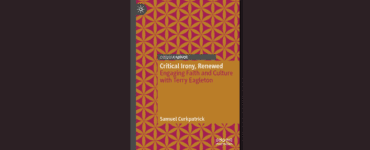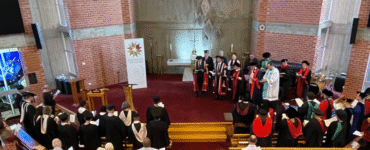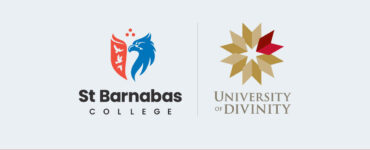By Bob Derrenbacker and Vicky Balabanski
The peak international society of New Testament studies – the SNTS (Studiorum Novi Testamenti Societas) had its 78th General Meeting from 23-26 July 2024 in Melbourne. The venue was the ACU’s Melbourne campus, and the local organizing committee was made up of University of Divinity scholars (Bob Derrenbacker and Robyn Whitaker) as well as ACU scholars (Benjamin Edsall, Stephen Carlson, Kylie Crabbe and Michael Theophilos). One Australian is on the SNTS International Committee (UD’s Vicky Balabanski). Of the five main papers, two were given by Australians (Dorothy Lee [from the UD] and Alan Cadwallader), who spoke about some cutting edges of their respective research: Lee on narrative disjunction and the Johannine Prologue and Cadwallader on the value and limits of the study of material culture in interpreting a new inscription from Hierapolis. Four other UD colleagues presented seminar papers during the conference, with two others presenting short papers.
The Society has a majority of British, European and North American elected members. This 78th meeting in Australia had a distinctive look, with many southern hemisphere scholars and guests attending and presenting. This is only the second SNTS meeting to take place in Australia, and only the third in the southern hemisphere. Under the guidance of the newly installed President, Professor Angela Standhartinger of Germany, the (roughly) 170 conference participants engaged in-depth in one of the nine seminar groups, and had the opportunity to discuss a variety of short papers. The Panel on Asia-Pacific New Testament Scholarship, led by scholars from Samoa, Korea, India and Hong Kong, talked about the current trends and emphases in New Testament scholarship in their contexts, leading into a discussion of how this scholarship can be sustained and facilitated by the international scholarly community.
It was a delight to see early career scholars meet and discuss their research with established scholars. The value of the Society lies particularly in this fostering of connections across boundaries and languages and the opportunity to learn how New Testament studies are developing and responding to contexts, methods and the pressing questions of today.






Add comment